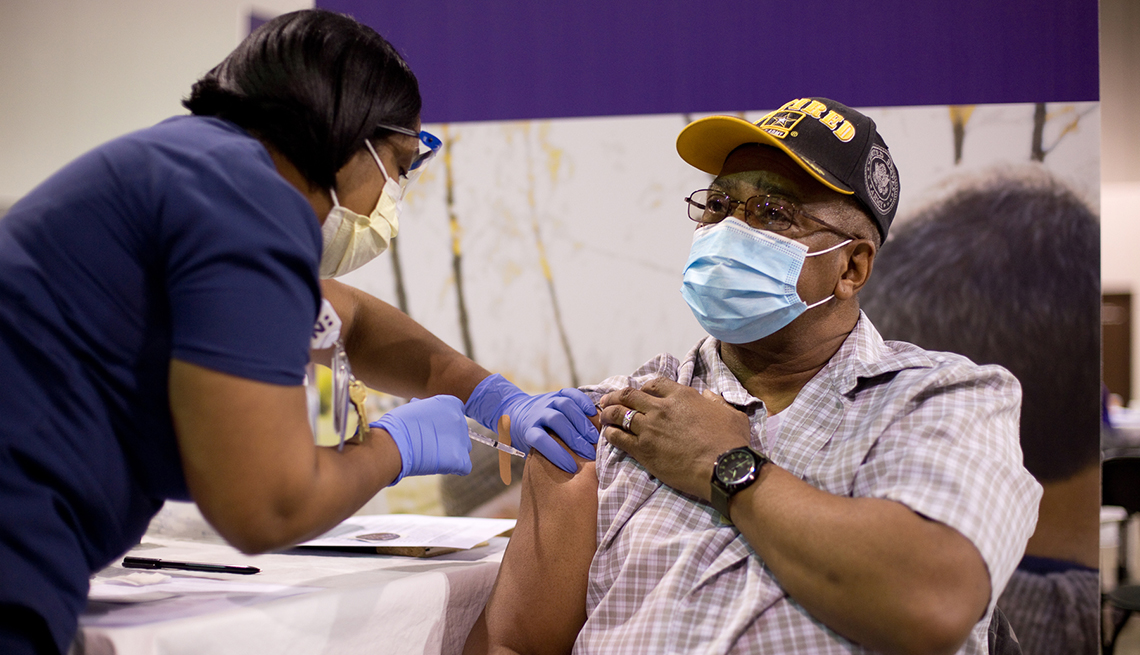
How seniors without a computer can book a covid vaccine
- Select a language for the TTS:
- UK English Female
- UK English Male
- US English Female
- US English Male
- Australian Female
- Australian Male
- Language selected: (auto detect) - EN
Play all audios:

Still, the hospital is a 25-minute drive from Gean's home. A Colorado Gerontological Society staff member arranged a ride, and Gean received his first shot, with the second scheduled
soon. 'GO OUT TO WHERE PEOPLE ARE' Fresh ideas are needed to connect older adults to vaccines, says Lisa A. Cooper, M.D., an internist and director of the Center for Health Equity
at the Johns Hopkins Bloomberg School of Public Health in Baltimore. “Go out to where people are,” Cooper says. “You can have the fanciest site, where it's all set up, and they're
not coming.” Cooper is encouraged by the use of mobile clinics to distribute vaccines. And she suggests that churches can also help. For example, congregants who drop off items at
churchgoers’ homes can ask, “Say, have you had a vaccine shot yet?” and help with signup. Libraries, too, are playing a role. Patt Saich, 81, of Diamond Springs, California, was startled to
get a call from a local librarian, asking if she and her husband, Gary Saich, 85, wanted vaccines. They do not own a computer. "Boy, did we jump on that,” says Patt Saich. The call came
from Kelly Jordan, a librarian with the Eldorado County Public Library System. It had received the phone numbers of people who had called a county hotline earlier, seeking the vaccine,
Jordan says. When appointments opened up, librarians began making calls. "I said, ‘Bless your heart,’ “ says Patt Saich, happy to report that she and her husband have now received both
shots. In some areas, Meals on Wheels is connecting homebound clients with agencies to arrange at-home vaccinations. RACIAL DIVIDE The digital divide can be especially challenging for people
of color. Only 57 percent of Latinos and 58 percent of Blacks have computers, compared to 82 percent of whites, according to another 2019 Pew study. "If you don't have that
savviness in using technology, you're going to have to figure out a different way to sign up,” says Cooper, who studies health disparities at Johns Hopkins. At the nonprofit Kedren
Community Health Center in South Los Angeles, more than half the vaccines are going to seniors who walk in, largely Black and Latino residents.
